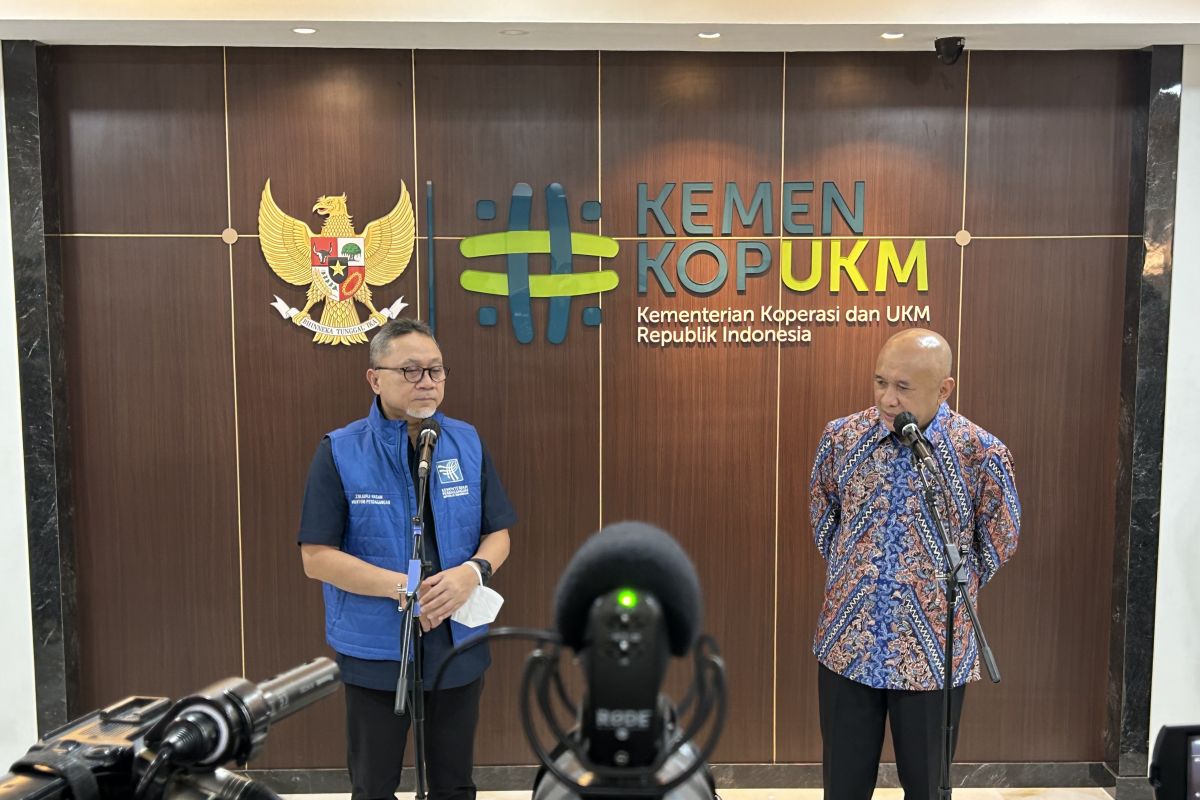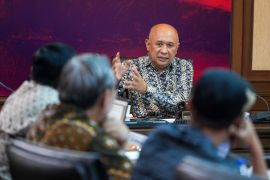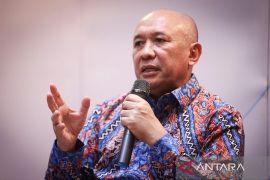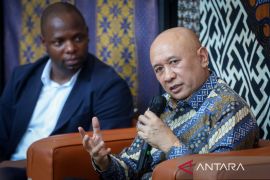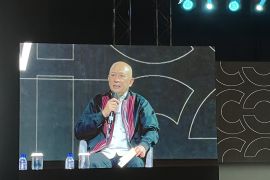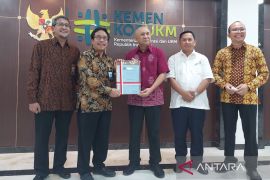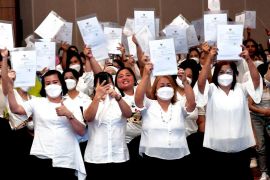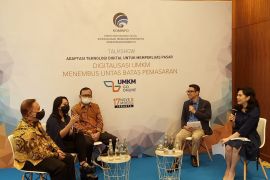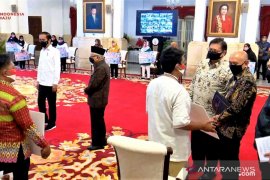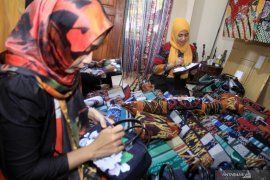Everything we do is for the sake of protecting the domestic industry and MSMEs.Jakarta (ANTARA) - Cooperatives and Small and Medium Enterprises Minister Teten Masduki and Trade Minister Zulkifli Hasan have agreed on a number of steps to end illegal imports of used clothing.
The move is aimed at protecting domestic textile, apparel, and footwear industries and micro, small, and medium enterprises (MSMEs).
"We received instructions from President Joko Widodo in the interest of protecting MSME and textile product producers, one of which is by eradicating illegal imports of used clothing, which has started from the Ministry of Finance, the Ministry of Trade, and the police because they are involved in (monitoring) illegal trade," Masduki said at a press conference at his office in Jakarta on Monday.
The agreement between the ministers covers efforts to shut off used clothing imports at their source, starting from upstream, in this case, smugglers who are importing such clothing, as well as the implementation of restrictions for traders selling the clothing.
The Ministry of Cooperatives and SMEs, the Ministry of Trade, and the Ministry of Finance will coordinate with the police to close the imports of used clothing upstream—particularly, at small ports that are often used by smugglers, including storage warehouses—and impose maximum sanctions/penalties on illegal importers.
Furthermore, together with the Minister of Trade, Masduki has prepared restrictions on the entry of imported products so that they do not hurt the sales of domestic products.
"Currently, unrecorded imports, including illegal imports of illegal clothing and footwear are very large; on average, 31 percent of the total domestic market; not too much different from legal imports of clothing and footwear of 41 percent," he informed.
However, traders who have already taken the illegal goods are still being given a deadline and permitted to sell the remaining used clothes.
“Illegally imported used clothing is different from the crackdown on drug smuggling. Especially now that this is the fasting month, they (traders of illegal used clothing) have to find sustenance and there is a compromise there," he explained.
In addition, literacy is needed among consumers on protecting domestic products, as well as knowing the legal risks involving the sale of illegally imported used clothes, Masduki said.
His ministry is also committed to tightening the impact of used clothing imports because the domestic clothing industry cannot compete with them, considering that illegally imported second-hand clothes enter as waste as they are not subject to tax and do not involve production costs.
Meanwhile, Minister Hasan said that his ministry will again destroy around seven thousand balls (sacks) of imported used clothing worth Rp80 billion. The government has prohibited the import of used clothing unless it has been regulated and meets the eligibility requirement and so on, he stressed.
“What we eradicate is illegal contraband that travels through rat routes. So that's what was confiscated and destroyed, including used clothes. What about the traders? If the illegality has been eradicated, then the traders will not sell (the goods). Everything we do is for the sake of protecting the domestic industry and MSMEs,” he said.
Related news: Govt allows retailers to sell used imported clothes during Ramadan
Related news: Government to impose restrictions on textile imports: Minister
Related news: Ministry to prioritize destroying illegally imported used clothing
Translator: Kuntum Riswan, Cindy Frishanti Octavia
Editor: Sri Haryati
Copyright © ANTARA 2023
